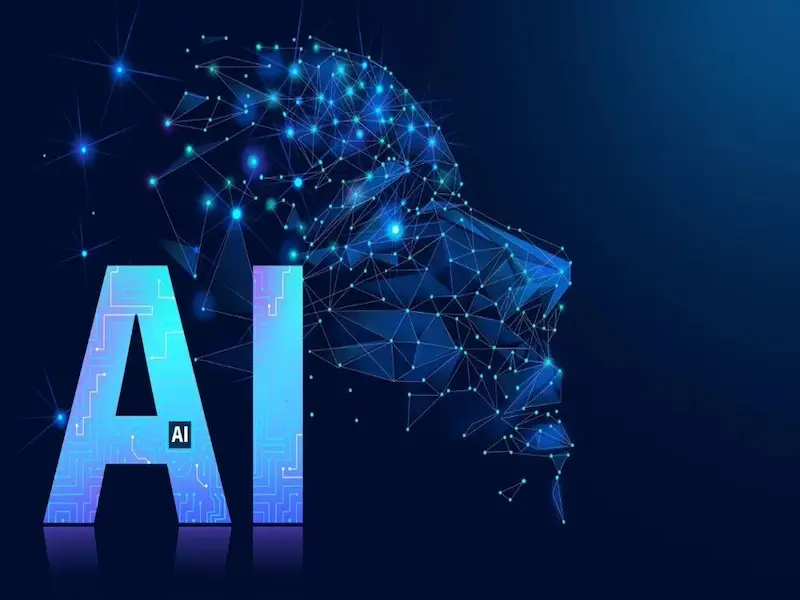- AI is enhancing diagnostics, personalised medicine, and patient care through data analysis and predictive modeling, leading to improved health outcomes.
- Automation powered by AI optimises production processes, reduces costs, and minimises human error, resulting in smarter factories and supply chains.
- The finance sector benefits from AI through fraud detection, algorithmic trading, and customer service automation, driving efficiency and better decision-making.
Artificial Intelligence is set to profoundly impact a wide range of industries, ushering in a new era of innovation and efficiency. From healthcare, where AI is revolutionising diagnostics and treatment personalisation, to manufacturing, which benefits from enhanced automation and optimisation, the technology is reshaping traditional practices.
The finance industry also sees significant advancements as AI aids in fraud detection and automates various processes. As these transformations unfold, businesses must adapt to the changing landscape to leverage AI’s full potential and stay competitive in an increasingly digital world.
Also read: What Is The Disruptive Impact Of Ai On Pharmaceutical And Clinical Applications?
Also read: The troubling impact of AI art on traditional artists
Industries most impacted by AI
Some industries are expected to see significant job growth due to AI, while others may see a decline in specific roles but an increase in others. For better or worse, here are some of the industries that will be most impacted by AI:
Healthcare
The healthcare industry is experiencing a revolution thanks to AI. Predictive analytics, personalised medicine, and enhanced diagnostics are just the beginning. AI tools are becoming indispensable for improving patient outcomes and optimising healthcare delivery.
As for jobs, AI is expected to create demand for data scientists, machine learning engineers, and AI specialists in the healthcare industry. These professionals develop algorithms, analyse big data, and build AI solutions to improve patient care. Still, some healthcare jobs, such as radiologists and pathologists, may decline due to AI.
Finance
In the finance industry, AI technology has already proven integral in fraud detection, automated trading, and streamlining processes, among other capabilities. The efficiency and decision-making improvements brought about by AI in finance are undeniable.
Datarails’ FP&A Genius, for instance, leverages the power of conversational AI to provide unprecedented real-time insights to finance teams. Instead of leaving finance professionals to dig for information, FP&A Genius automatically generates dynamic charts and financial reports, letting decision-makers drill down on the underlying data.
This is an excellent example of AI simply freeing up their time for higher-value tasks rather than taking jobs away from finance professionals.
Retail
Online shopping was already a booming industry before AI came into the picture. Now, with AI-enabled solutions like product recommendations and chatbots, retailers can give more personalised experiences to their customers. AI tools can analyse customer data to understand purchase patterns and preferences and then use that information to provide relevant product suggestions.
On the other hand, chatbots provide efficient and 24/7 customer service, which can boost overall customer satisfaction. Inventory management systems powered by AI can also optimise product stocking and reduce waste, leading to cost savings for retailers.
Education
With the rise of remote learning due to the pandemic, AI tools earned their place in the education industry, proving to be a vital advantage to schools and students with access to them.
AI-powered learning platforms can adapt to each student’s needs, providing personalised curriculums and feedback. This not only benefits students but also reduces teachers’ workload in terms of lesson planning and grading. Some schools also use AI chatbots that can act as virtual teaching assistants, providing quick and accurate responses to students’ commonly asked questions.
Some experts predict that relying too heavily on AI technology will lead to students being less critical thinkers and more reliant on machines for their learning. While this is part of a broader conversation, there are also concerns about data privacy and security when implementing AI tools in classrooms.
Transportation
Predictive maintenance, route optimisation, and especially self-driving cars are just a few ways we already see AI implemented in transportation. Self-driving cars, in particular, are a hot topic of discussion and development. They could potentially increase road safety and reduce accidents caused by human error. Self-driving cars might even improve traffic flow and reduce carbon emissions by optimising routes and speeds. There are also possibilities for more efficient public transportation systems, as AI can analyse data to determine the most effective routes and schedules.
This does bring up ethical considerations, as machines would essentially make decisions about safety and potential harm. If self-driving vehicles become mainstream, there is also the concern of job displacement for drivers in various industries. Considering that more than 15 million Americans work in transportation, this has the potential to impact the workforce significantly.

